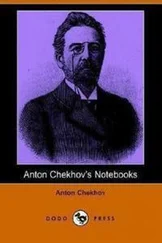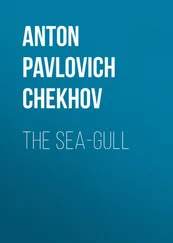Антон Чехов - Letters of Anton Chekhov
Здесь есть возможность читать онлайн «Антон Чехов - Letters of Anton Chekhov» весь текст электронной книги совершенно бесплатно (целиком полную версию без сокращений). В некоторых случаях можно слушать аудио, скачать через торрент в формате fb2 и присутствует краткое содержание. Год выпуска: 2004, Жанр: Прочая документальная литература, на английском языке. Описание произведения, (предисловие) а так же отзывы посетителей доступны на портале библиотеки ЛибКат.
- Название:Letters of Anton Chekhov
- Автор:
- Жанр:
- Год:2004
- ISBN:нет данных
- Рейтинг книги:5 / 5. Голосов: 1
-
Избранное:Добавить в избранное
- Отзывы:
-
Ваша оценка:
- 100
- 1
- 2
- 3
- 4
- 5
Letters of Anton Chekhov: краткое содержание, описание и аннотация
Предлагаем к чтению аннотацию, описание, краткое содержание или предисловие (зависит от того, что написал сам автор книги «Letters of Anton Chekhov»). Если вы не нашли необходимую информацию о книге — напишите в комментариях, мы постараемся отыскать её.
Letters of Anton Chekhov — читать онлайн бесплатно полную книгу (весь текст) целиком
Ниже представлен текст книги, разбитый по страницам. Система сохранения места последней прочитанной страницы, позволяет с удобством читать онлайн бесплатно книгу «Letters of Anton Chekhov», без необходимости каждый раз заново искать на чём Вы остановились. Поставьте закладку, и сможете в любой момент перейти на страницу, на которой закончили чтение.
Интервал:
Закладка:
The winter of 1898 was extremely severe in the Crimea. The cold, the snow, the stormy sea, and the complete lack of people akin to him in spirit and of "interesting women" wearied Chekhov; he began to be depressed. He was irresistibly drawn to the north, and began to fancy that if he moved for the winter to Moscow, where his plays were being acted with such success and where everything was so full of interest for him, it would be no worse for his health than staying in Yalta, and he began dreaming of buying a house in Moscow. He wanted at one moment to get something small and snug in the neighbourhood of Kursk Station, where it might be possible to stay the three winter months in every comfort; but when such a house was found his mood changed and he resigned himself to life at Yalta.
The January and February of 1899 were particularly irksome to Chekhov: he suffered from an intestinal trouble which poisoned his existence. Moreover consumptive patients from all over Russia began appealing to him to assist them to come to Yalta. These invalids were almost always poor, and on reaching Yalta mostly ended their lives in miserable conditions, pining for their native place. Chekhov exerted himself on behalf of everyone, printed appeals in the papers, collected money, and did his utmost to alleviate their condition.
After the unfavourable winter came an exquisite warm spring, and on the 12th of April Chekhov was in Moscow and by May in Melihovo. His father had died the previous October, and with his death a great link with the place was broken. The consciousness of having to go away early in the autumn gradually brought Chekhov to decide to sell the place.
On the 25th of August he went back to his own villa at Yalta, and soon afterwards Melihovo was sold, and his mother and sister joined him. During the last four and a half years of his life Chekhov's health grew rapidly worse. His chief interest was centred in Moscow, in the Art Theatre, which had just been started, and the greater part of his dramatic work was done during this period.
Chekhov was ill all the winter of 1900, and only felt better towards the spring. During those long winter months he wrote "In the Ravine." The detestable spring of that year affected his mood and his health even more. Snow fell on the 5th of March, and this had a shattering effect on him. In April he was again very ill. An attack of intestinal trouble prevented him from eating, drinking, or working. As soon as it was over Chekhov, homesick for the north, set off for Moscow, but there he was met by severe weather. Returning in August to Yalta, he wrote "The Three Sisters."
He spent the autumn in Moscow, and at the beginning of December went to the French Riviera, settled in Nice, and dreamed again of a visit to Africa, but went instead to Rome. Here, as usual, he met with severe weather. Early in February he returned to Yalta. That year there was a soft, sunny spring. Chekhov spent whole days in the open air, engaged in his favourite occupations; he planted and pruned trees, looked after his garden, ordered all sorts of seeds, and watched them coming up. At the same time he was working on behalf of the invalids coming to Yalta, who appealed to him for help, and also completing the library he had founded at Taganrog, and planning to open a picture gallery there.
In May, 1901, Chekhov went to Moscow and was thoroughly examined by a physician, who urged him to go at once to Switzerland or to take a koumiss cure. Chekhov preferred the latter.
On the 25th of May he married Olga Knipper, one of the leading actresses at the Art Theatre, and with her went off to the province of Ufa for the koumiss cure. On the way they had to wait twenty-four hours for a steamer, in very unpleasant surroundings, at a place called Pyany Bor ("Drunken Market"), in the province of Vyatka.
In the autumn of 1901 Tolstoy was staying, for the sake of his health, at Gaspra. Chekhov was very fond of him and frequently visited him. Altogether that autumn was an eventful one for him: Kuprin, Bunin and Gorky visited the Crimea; the writer Elpatyevsky settled there also, and Chekhov felt fairly well. Tolstoy's illness was the centre of general attention, and Chekhov was very uneasy about him.
In 1902 there was suddenly a change for the worse: violent haemorrhage exhausted him till the beginning of February; he was for over a month confined to his study. It was at this time that the incident of Gorky's election to the Academy and subsequent expulsion from it led Chekhov to write a letter to the Royal President of the Academy asking that his own name should be struck off the list of Academicians.
Chekhov had hardly recovered when his wife was taken seriously ill. When she was a little better he made a tour by the Volga and the Kama as far as Perm. On his return he settled with his wife in a summer villa not far from Moscow; he spent July there and returned home to Yalta in August. But the longing for a life of movement and culture, the desire to be nearer to the theatre, drew him to the north again, and in September he was back in Moscow. Here he was not left in peace for one minute; swarms of visitors jostled each other from morning till night. Such a life exhausted him; he ran away from it to Yalta in December, but did not escape it there. His cough was worse; every day he had a high temperature, and these symptoms were followed by an attack of pleurisy. He did not get up all through the Christmas holidays; he still had an agonizing cough, and it was in this enforced idleness that he thought out his play "The Cherry Orchard."
It is quite possible that if Chekhov had taken care of himself his disease would not have developed so rapidly or proved fatal. The feverish energy of his temperament, his readiness to respond to every impression, and his thirst for activity, drove him from south to north and hack again, regardless of his health and of the climate. Like all invalids, he ought to have gone on living in the same place, at Nice or at Yalta, until he was better, but he lived exactly as though he had been in good health. When he arrived in the north he was always excited and absorbed by what was going on, and this exhilaration he mistook for an improvement in his health; but he had only to return to Yalta for the reaction to set in, and it would seem to him at once that his case was hopeless, that the Crimea had no beneficial effect on consumptives, and that the climate was wretched.
The spring of 1903 passed fairly favourably. He recovered sufficiently to go to Moscow and even to Petersburg. On returning from Petersburg he began preparing to go to Switzerland. But his state of health was such that his doctor in Moscow advised him to give up the idea of Switzerland and even of Yalta, and to stay somewhere not very far from Moscow. He followed this advice and settled at Nar. Now that it was proposed that he should stay the winter in the north, all that he had created in Yalta—his house and his garden—seemed unnecessary and objectless. In the end he returned to Yalta and set to work on "The Cherry Orchard."
In October, 1903, the play was finished and he set off to produce it himself in Moscow. He spent days at a time in the Art Theatre, producing his "Cherry Orchard," and incidentally supervising the setting and performance of the plays of other authors. He gave advice and criticized, was excited and enthusiastic.
On the 17th of January, 1904, "The Cherry Orchard" was produced for the first time. The first performance was the occasion of the celebration of the twenty-fifth anniversary of Chekhov's literary activity. A great number of addresses were read and speeches were made. Chekhov was many times called before the curtain, and this expression of universal sympathy exhausted him to such a degree that the very day after the performance he began to think with relief of going back to Yalta, where he spent the following spring.
Читать дальшеИнтервал:
Закладка:
Похожие книги на «Letters of Anton Chekhov»
Представляем Вашему вниманию похожие книги на «Letters of Anton Chekhov» списком для выбора. Мы отобрали схожую по названию и смыслу литературу в надежде предоставить читателям больше вариантов отыскать новые, интересные, ещё непрочитанные произведения.
Обсуждение, отзывы о книге «Letters of Anton Chekhov» и просто собственные мнения читателей. Оставьте ваши комментарии, напишите, что Вы думаете о произведении, его смысле или главных героях. Укажите что конкретно понравилось, а что нет, и почему Вы так считаете.











